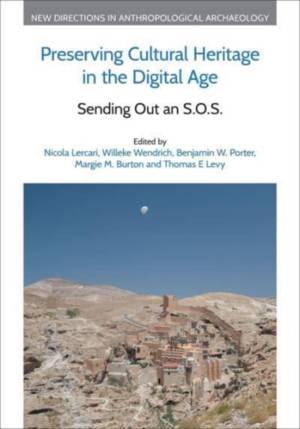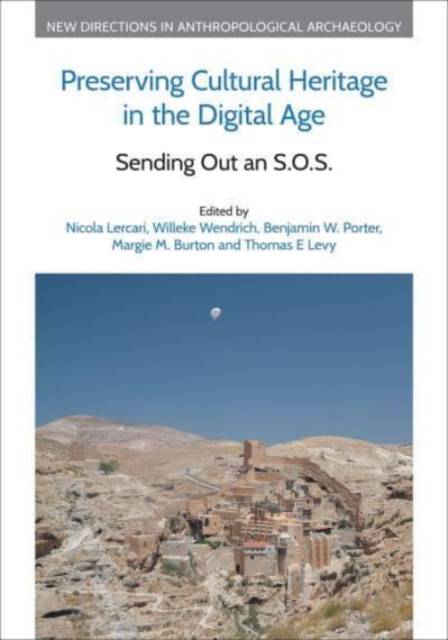
Bedankt voor het vertrouwen het afgelopen jaar! Om jou te bedanken bieden we GRATIS verzending (in België) aan op alles gedurende de hele maand januari.
- Afhalen na 1 uur in een winkel met voorraad
- In januari gratis thuislevering in België
- Ruim aanbod met 7 miljoen producten
Bedankt voor het vertrouwen het afgelopen jaar! Om jou te bedanken bieden we GRATIS verzending (in België) aan op alles gedurende de hele maand januari.
- Afhalen na 1 uur in een winkel met voorraad
- In januari gratis thuislevering in België
- Ruim aanbod met 7 miljoen producten
Zoeken
Preserving Cultural Heritage in the Digital Age
Sending Out an S.O.S.
€ 185,45
+ 370 punten
Omschrijving
In late August 2015, international media outlets and cultural institutions reported that the Islamic State beheaded the Syrian scholar Khaled al Asaad and destroyed the 1st-century CE Temple of Bel in Palmyra, Syria. The world was horrorstruck. Apart from the human tragedy, archaeologists and the international communities were shocked by the wanton destruction of ancient remains that had survived for millennia. However, warfare and ideological destruction contribute just a fraction of the ongoing devastation of our forebears' traces. This book brings attention to the magnitude of the silent loss of cultural heritage occurring worldwide and the even more insidious loss of knowledge due to the lack of publication and preservation of original data, notes, plans, and photographs of excavated archaeological sites. Highlighting a growing sense of urgency to intervene in whatever way possible, this book provides readers with a non-technical overview of how archaeologists and other stakeholders are increasingly turning to digital methods to mitigate some of the threats to at-risk cultural heritage. This volume is a gateway to enhancing the scale and reach of capturing, analyzing, managing, curating, and disseminating cultural heritage knowledge in sustainable ways and promoting collaboration among scholars and stakeholder communities.
Specificaties
Betrokkenen
- Uitgeverij:
Inhoud
- Aantal bladzijden:
- 300
- Taal:
- Engels
- Reeks:
Eigenschappen
- Productcode (EAN):
- 9781800501263
- Verschijningsdatum:
- 1/11/2021
- Uitvoering:
- Hardcover
- Formaat:
- Genaaid
- Afmetingen:
- 178 mm x 254 mm
- Gewicht:
- 820 g

Alleen bij Standaard Boekhandel
+ 370 punten op je klantenkaart van Standaard Boekhandel
Beoordelingen
We publiceren alleen reviews die voldoen aan de voorwaarden voor reviews. Bekijk onze voorwaarden voor reviews.








